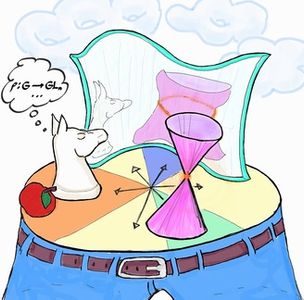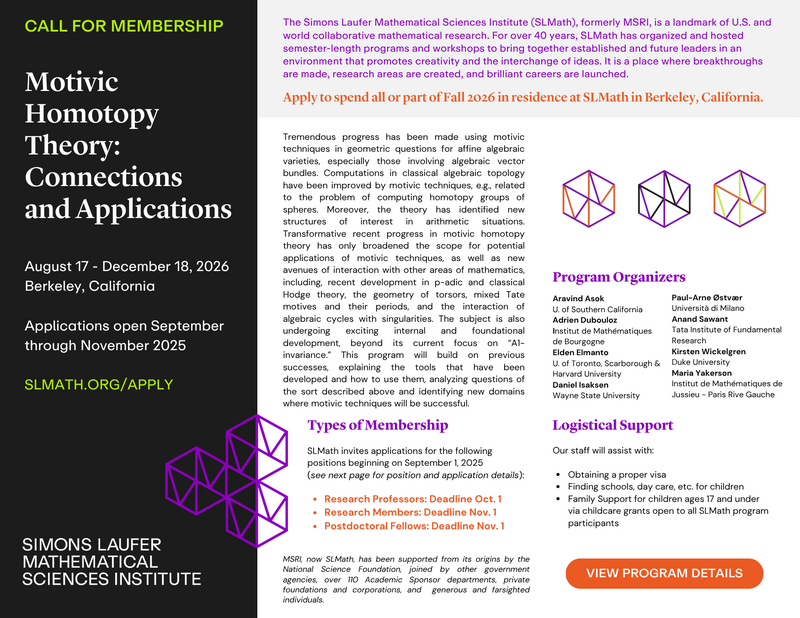Quantum Symmetries
Date: 21 January - 29 May 2020
Location: MSRI
Event type: Extended Format
Organisers: Vaughan Jones (Vanderbilt), Scott Morrison (ANU), Victor Ostrik (Oregon), Emily Peters (Loyola), Eric Rowell (Texas A&M), Noah Snyder (Indiana), Chelsea Walton (Illinois, Urbana-Champaign)
Symmetry, as formalized by group theory, is ubiquitous across mathematics and science. Classical examples include point groups in crystallography, Noether’s theorem relating differentiable symmetries and conserved quantities, and the classification of fundamental particles according to irreducible representations of the Poincaré group and the internal symmetry groups of the standard model. However, in some quantum settings, the notion of a group is no longer enough to capture all symmetries. Important motivating examples include Galois-like symmetries of von Neumann algebras, anyonic particles in condensed matter physics, and deformations of universal enveloping algebras. The language of tensor categories provides a unified framework to discuss these notions of quantum symmetry.
Professor Daniel Freed (Texas A&M) has been appointed as a Clay Senior Scholar to participate in this program.
CMI Enhancement and Partnership Program
Related events
See all events
Knotted Surfaces in Four-Manifolds
Park City Mathematics Institute

p-adic Kudla Program and p-adic Automorphic Forms
CIRM

Representation Theory Under the Influence of Quantum Field Theory
Simons Laufer Mathematical Sciences Institute

Motivic Homotopy Theory: Connections and Applications
Simons Laufer Mathematical Sciences Institute